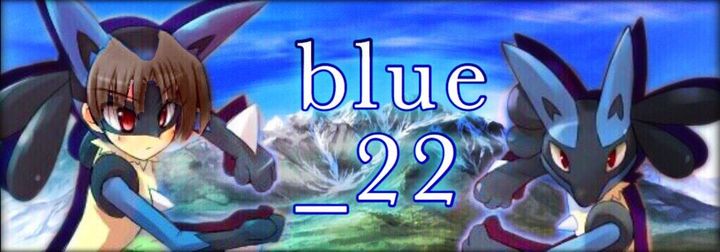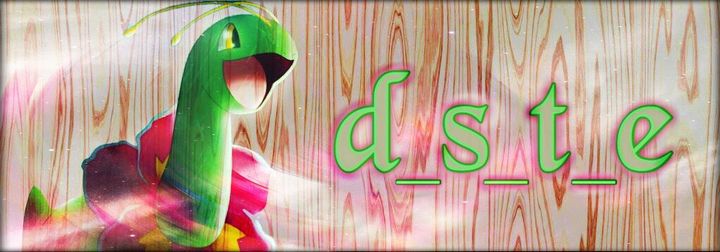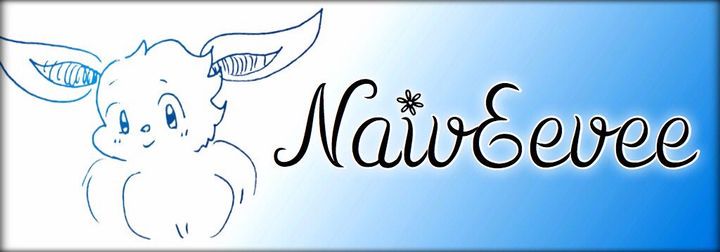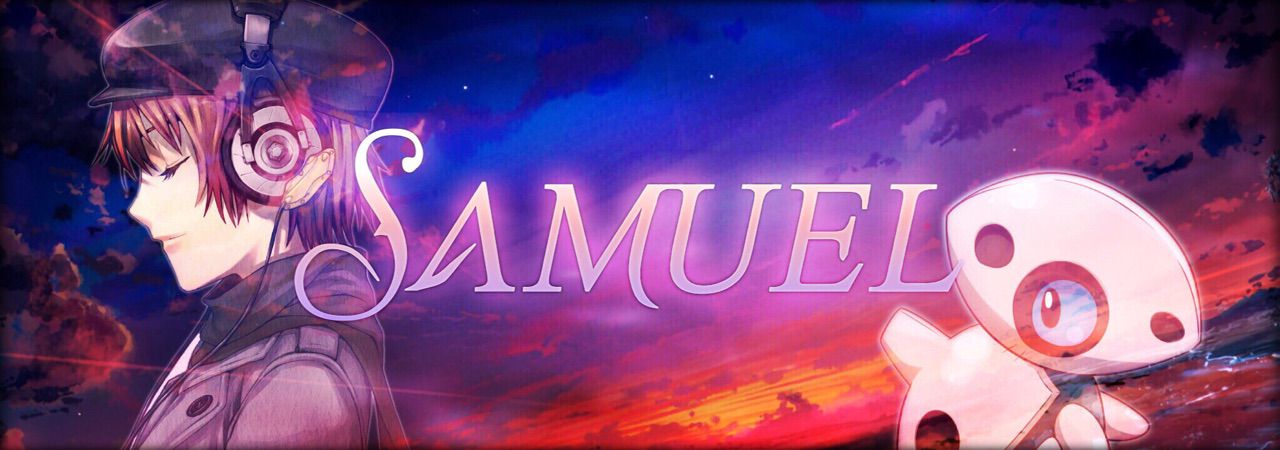Alola, Alola by Inuwanforall
Alola, Alola:
"A young girl's blissful summer in Alola is slowly coming to a close, and soon she will be back at home in the cold of Sinnoh to begin a dreary life once again. In the midst of her final week, she does her best to make the most of the rest of her stay, but coming to terms with reality is more than difficult as she only happens to fall even more in love with the tropical region.
Illustration&Cover by me ^^ [inuwanforall]
✧・.☆4th Place in the Short Story category of the 2018 Pokémon Watty Awards!☆.・✧"
Genre: Short Story

Alola, Alola was my own personal equivalent of how The West Wing was to Democrats of the Bush Era. To me, it was the fantasy ending to a personal struggle I dealt with when I left Germany to come to America. A struggle where I was in my final days of living in a Europe that I found peace in and enjoyed. It was a reflection of myself and my emotions, but with an alternate ending.
As someone who has found a home in a foreign place before, I could completely relate to the wide range of emotions that Mizuki was going through. And if I didn't go through them personally, logically I could see and understand.
When you leave a place you've found a home in, there are so many little details that you latch onto. I really respect how the author took the details of masala bread and the Wishiwashi and included them in the story. I love the locations and the love poured into them. It reminds me a lot of how on my last day abroad, I went on a long walk through all of my favorite places and ate all of my favorite foods. And the struggle of trying to keep yourself together is something I related to as well.
My farewell dinner with all of our expatriate friends is something that I was reminded of when the author talked about Mizuki's second day. The descriptions of loving the heat and the sun remind me of my own parent's reasons for leaving the north and coming to the south.
In short, this short story captures the bittersweet essence of having to live in and leave a place. It celebrates Alola for Alola and its culture. Especially with the ending. I think it was really creative how the author ended the short story with using Alola as both a greeting and signifying the place. It rings true of "I want Alola".
However, there is one issue I have with this short story, and it's because I'm someone who has experienced this feeling. It's about culture shock and about foreign assignments in general.
Three months isn't necessarily enough time to really build a home in a place. When I was first going through cultural training on my own assignment, they teach you that it takes about a year to build a home in a place. When you move, there's about a six-week "honeymoon period" where you are enthralled with this new culture and new place. However, after those six-weeks, your mood goes on a massive decline for about 3-4 months until it starts to pick up again and you find a home. The entire process lasts about a year, which is why a lot of people on short-term moves struggle a lot.
If there's something I would recommend that you do, I would recommend that you perhaps lengthen Mizuki's stay in Alola. Instead of a summer program, maybe make it something more like a year-long study abroad? That way, Mizuki's emotional transition would be more rational. Because, at the point she's at, she'd logically want to be going home, even with her family life.
But, other than that, I see a true reflection of the realities of living abroad that's told in a beautiful and enriching way that stimulates all the senses. I really like this story and I feel like it truly reflects personal truths in compelling way.
Rating : 9/10

Alola, Alola is a charming story about a girl named Mizuki who grew up in the frigid climate of Snowpoint City and has a home life that's perhaps equally as frigid. She spends a wonderful summer in Alola and finds herself increasingly upset that she has to go back home again.
I have to say that this story was excellent all around. One thing I loved were all the details, from the ones that brought out the beauty and wonders of Alola to the ones that brought excitement to the battle scene and all the little gems in between, they really brought the story to life in the best way. This caught my attention from the very first paragraph, which does a skillful job of introducing the conflict in an interesting way that also paints a clear picture in the reader's head and invites zir into the rest of the story.
Another place in which the details were really well done was in the introduction of the Pokémon and all the parts including them that followed. I was really able to get a sense of the distinct personality of each of the three starter Pokémon in a very short period of time, and the more time the story spent on them the clearer the picture became. I especially fell in love with Litten, who was absolutely adorable. I could definitely understand why Mizuki had developed an attachment to him. I was a bit confused at how a canonically sixteen and a half pound Popplio could comfortably ride on Yo's head and hide underneath his hat, but I guess that's a minor concern. It's not like canon weights and heights make a ton of sense anyway.
I also enjoyed that the plot was perfectly suited for a bite sized story. It didn't try to go too big or include multiple sub plots. It's a textbook example of keeping it simple, of doing just one thing and doing it right.
I also want to mention that I absolutely love that the author of this story created an original cover for it. I never would have guessed that the background image was created by the same person who wrote the story because Mizuki looks so good on it! I am endlessly jealous of those artistic abilities.
The only element of the story that I found myself wishing to be a little different had to do with Mizuki's parents. Throughout the story we get little hints that her home life isn't the best, but it didn't really come together in a solid way for me until I actually saw them in the last chapter. Even then, they confused me a little bit. **SPOILER ** I thought it felt like it was coming out of nowhere when Mizuki's mother admitted that their home might not be the best environment for their daughter because, up to this point, she seemed to be really controlling, the type to believe that what is best for her daughter is to do whatever she wants her to do. **SPOILER ENDS** I also thought it would have made for more tension in the story and an even stronger explanation of why Mizuki wanted to stay in Alola if we had learned more about her parents from earlier on. Maybe even if there was a brief scene in which she reads a letter from home or something like that, having a brief appearance of her parents and their personalities would have improved the story, in my opinion.
On the technical side, the story was very well written. It's unusual for me to read a story that has so few errors in it, and that made it very pleasant and relaxing. Apart from a missing apostrophe, a spelling error, and the use of hyphens instead of em dashes, the entire thing was practically spotless. My biggest complaint is that there was occasionally some awkward wording, like the twisting of the expression "hook, line, and sinker" into saying that Mizuki was "hooked, line, and sunk like a Wishiwashi". A hook and a sinker are actual pieces of fishing gear and are nouns rather than verbs, such that the expression usually evokes the image of a fish swallowing not just the hook but an even greater and definitely unnecessary portion of the fishing gear because it's so taken with the bait. In general, it's good to look up common expressions if you're ever unsure about how people tend to use them.
Apart from that, though, I really did enjoy the story. The details were amazing, the end was great, and overall I thought it was just a perfect little celebration of Alola. I definitely recommend this story!
8.5/10

In short, Alola, Alola is a short story about a young girl named Mizuki who arrives in Alola as a part of a summer trainer program. Though at first she didn't enjoy her move, she gradually came to appreciate the region. This four chapter story is about her going through her last days by visiting all her favorite places in Alola, eventually coming to the realization that Alola is a place she wants to call home longer.
Clearly, one of the best qualities about Alola, Alola is in how unique the descriptions are. They're fantastic, and they work well with the author's formal writing style. It's obvious that a lot of effort has been poured into describing the settings; it's as if the writer had perfectly drawn images of the settings and purposefully wrote the story in a way so that readers can only envision exactly what he or she had in mind. One way the writer does this is by using a lot of interesting words that really draws the readers' attention. Instead of just a single sentence containing the typical "bright and sunny day" phrase, you instead read many sentences worth of weather descriptions that are packed with beautiful visual imagery. This doesn't only apply just for settings, though, descriptions of Mizuki's emotions and actions were done just as well. Overall, the author is someone who I feel like has an almost perfect grasp and understanding of the concept of "show-don't-tell." Never once did I feel like the descriptions were lacking in any chapter. And never once did I feel like the descriptions were too overwhelming. There was a great balance struck between the actual story and the embedded descriptions, and I think this in itself is a great achievement for this four chapter long story.
Another notable feature of Alola, Alola is its single battle scene, located in Chapter Two. I think it's my favorite part about the story. It reads fast and vivid, just like how real battles should be in the Pokémon world. I think the fact that Mizuki happened to have her Litten who bears a type disadvantage against Popplio, the opponent, (and even lost) actually added to the realistic nature of the battle. Not only is it well-written, it's also dynamic and serves a thoughtful purpose in the plot. Through the battle alone, the writer is able to introduce a new character, Yo, as well as indirectly reveal yet another reason for Mizuki to feel as though she shouldn't have to leave. This all just builds up to the eventual climax in the last chapter, where Mizuki has to approach her strict parents about her desire to stay in Alola. Again, it's through the great descriptions that the tension of this final scene is executed well.
It might come across as a surprise at this point because of how I describe how polished this story really is that I think the biggest con about the story is its plot. See, the pacing, the mechanics (except for one thing which I'll mention later), the formatting, and the illustrative description are all there. The only real problem is that the story itself is just very ordinary, therefore very bland and predictable. There's just nothing about the plot that stands out. That is to say, if someone were to start telling the story to me from beginning to end, I wouldn't ever interrupt to say,"Wait, no, don't spoil me! I want to read and find out for myself." I know this would seem like a strange criticism considering how short the story is, but even for a short story, this story didn't hit the nail on the head for me in terms of originality.
The same can also be said for how the story handled characterization because at the end of the book, Mizuki as a character still felt really shallow to me. I feel almost no relation to her because the only thing I was getting from the story was her sad sentiments about leaving Alola. She didn't really have any distinguishing quirks or traits that made her memorable, even for a short story. Honestly, I think her Litten was actually more memorable.
Also, the ending isn't really satisfying to me. **SPOILER** I already predicted a happy ending by the middle of Chapter One, and I even guessed that Mizuki was going to encounter Tapu Koko by the end of Chapter Two. When Chapter Four came along, there was no doubt in my mind that Mizuki's parents were eventually going to let her stay because the story just seems to set them up as the strict-but-loving kind of parents from the very beginning. Their change of mind almost feels like it happened too quickly, and the only thing distracting me from this are the awesome descriptions. **SPOILER ENDS** In short, I wish the writer would insert some kind of "wow" factor in the story, just to add a little magic spice and an edge to it. Just something to make it so that I can say, "Oh yeah, you'll never believe what happened in Alola, Alola!"
Last criticism I would offer the writer is to consider going back and changing all the hyphens to dashes. Hyphens just don't deliver the same effect as dashes do because they're so short.
Overall, Alola, Alola is a superb story in regards to grammar and writing style, but the actual plot is too dull. It's basic and simple, and that's about all I can really say about it. As such, I would rate it a 5.5/10.

Alola Alola follows young girl named Mizuki during the final few days of her stay in Alola. However, instead of spending her time relaxing, she undergoes an internal conflict where she struggles with the thought of going home and is desperate to stay in Alola. This concept is dead simple, but it's really, really effective and makes for a good read.
I think the best thing about this book is its simplicity. The plot is simple, and it's a smaller story than most, but it doesn't need to be big or extravagant. It doesn't need an enormous world ending conflict or a huge battle to save the universe, it's just a kid falling in love with a new region and wanting to start a journey there. It's relatable, it's well executed and it's all it needs to be. The author didn't fall into the trap of making a larger external conflict and instead had faith that this smaller, internal conflict could make for a great read, and it massively paid off; it's every bit as interesting as any other story.
Of course, to make this type of story work, you need to get the reader invested in the book and its characters and whilst Mizuki is a good character, it's really the writing itself that does the heavy lifting. This book is beautifully written. It's so refreshing and so wonderful to read a book where the words on the page totally sucked me in, thoroughly engaging me and making me care completely about the outcome. The author clearly has a lot of talent in this area and puts it to good use.
I will say that, on occasion, it comes off like the author was trying a bit too hard to make their writing interesting. It doesn't happen often, but every now and then there's a sentence that just feels slightly out of place, or perhaps is a bit too fluffy and fancy. Mizuki is constantly referred to as "the black-haired girl" and it's a bit frustrating because there's just no need for this overly wordy phrasing. I know she has black hair; you don't need to keep saying it just for the sake of variety. Another example is when Mizuki "had been hooked, line and sunk like a Wishiwashi". As far as I'm aware, the phrase is supposed to be "hook, line and sinker" and it means to deceive, but the author uses it in place of "hooked" which is to become addicted. It just feels like the author was trying to do a bit much when there really was no need. Their writing is wonderful for the most part, and if they can trim down on what little fluff there is, it would make it just that bit better.
Honestly, the plot is really difficult to criticise. It's just solid. The only way it could be improved is down to a small structural issue. It's not a big problem, but I realised that most of what matters takes place in the final chapter, when Mizuki calls her parents. Here, a lot of the rising and falling of tension occurs and whilst the story had been building to this moment, I think it could've benefitted from another call to her parents, one earlier in the story. The second half of the first chapter is relatively pointless (it does help show why Mizuki wants to stay in Alola, but this is done pretty well throughout), and I think it could've been improved by including a call to her parents. The parents could show that they're very excited for Mizuki to come home, which could help to ramp up the tension as we feel Mizuki's worries and dread as the moment approaches later on when she asks to stay in Alola. Another thing was the battle in the second chapter, which I felt dragged on just a bit too long. Other than that, the whole thing is really solid.
One very small nitpick I have is that Mizuki is referred to as preteen. Usually I'd let this slide as age in the Pokémon world is apparently irrelevant, but it's implied that Mizuki has some attraction towards shirtless Kukui, which is an odd and unnecessary thought. And maybe the conflict would feel a bit more real if Mizuki was a young adult wanting to leave home and gain independence. This didn't really bother me though, as apparently being ten in the Pokémon world is old enough to travel the world on your own.
Grammatically, the book is pretty good as well. The only recurring mistake I found was em dash usage after the first chapter. The author clearly knows how to use em dashes, since their use in the opening chapter was perfect, but after that the author uses hyphens instead. This is a pretty easy fix and would make the book even more polished than it already is.
Overall, this book is really good. It made my life as a critic very difficult as I have very little to talk about. It's simple, it's sweet, it's wonderfully written and I enjoyed every second of reading it.
8.5/10

Alola, Alola is quite an intriguing story and perhaps a hidden jewel as well. I have whole lots more positives to say than negative about it. One the things I liked most about the story was its natural flow—the story comprises the events of five days in four chapters only, and despite using very descriptive narration, it doesn't feel rushed at all. Granted that a day has been skipped in between, but that never even served the plot.
The narration here is the highlight of the story. It is pulled off nicely with the use of vivid imagery and a relatively wide array of word choices. It is written in the third person point of view but focuses on the perspective of Mizuki, the protagonist, and stays consistent throughout. This also gives the advantage for a detailed character development, which brings me to my next point.
The story itself starts with Mizuki pondering over how short a time she has left in Alola and then advances to her thoughts towards her rather dominating parents who have been making decisions for her all these years. She is portrayed as an obedient child, albeit rebellious thoughts cloud her mind all the time. She listens to her parents but is severely annoyed by their influence, too, because they want her to follow the different career paths they both individually desire. Even the decision to send her to Alola was theirs and against her wishes. However, as Mizuki spends her summer in Alola, she comes to love the warm, tropical region more than her home, the cold Snowpoint City. Conflicting thoughts drive her crazy, and she has difficulty making a decision.
The author doesn't just make the character rebel out of frustration but gently handles her situation over time and gives her much needed pushes through several different events, which includes **SPOILER** her run-in with the legendary Pokémon Tapu Koko, who gives her a sparkling stone as well. What I liked most about her brief and indirect interaction with the guardian deity is that despite it considering Mizuki a worthy trainer, this does not lead to her becoming a chosen one of sorts. Rather, this helps her build her confidence as she later confronts her parents about her decision and convinces them in her favour **SPOILER ENDS**.
There is also a brief battle scene in the story and despite not being an overly top-notch, fast-paced battle, it does its job well. The description is there, the emotions are there and overall, the battle is enjoyable, despite being a very short one. It does, like almost everything else, serve the plot. Almost everything is relevant to the plot in some way or form.
With all the good things I've had to say about this story, there are some negatives, but, surprisingly, they are very few. Besides few typos, there wasn't much that I could notice. Most of them were the misuse of hyphen and em-dash and using unrequired pronouns in a few places. A quick reread should be enough to fix the issue. I would ask for a more detailed battle, but this is a short story and that's more of a personal preference. The story itself is really well done, though the same could not be said about the cover. It is hand drawn. The effort is appreciated, and I like the artwork itself, too. Really. But that's its limit. The title is so bland I barely paid it any heed. The author's name? I didn't even notice it at first glance. Comparing to the art itself—Mizuki sitting on the beach with a sombre look—which perfectly matches the tone of the story, the addition of title and author's name severely tones down the result of the hard work. I would suggest making the title bigger and stand out more, and author's name more complimentary to it so that it would catch more eyes. That is the reason why I called it a hidden jewel in the first place; everything that the author did is suppressed by this minor error that can be fixed without much effort.
Overall, with a detailed character development and consistent plot, Alola, Alola is a good, short read that I would recommend to others. The issues with the story do not hinder the reading experience itself, and the way it deals with the self-confidence is worthy of praise.
***
Credits: Article by d_s_t_e
Reviews by blue___22, d_s_t_e, NaivEevee, DI_Gremlin, Samuel_Sam_Rourke
Special thanks to Inuwanforall for letting us review this short story. An interview will be coming later.
Bạn đang đọc truyện trên: AzTruyen.Top